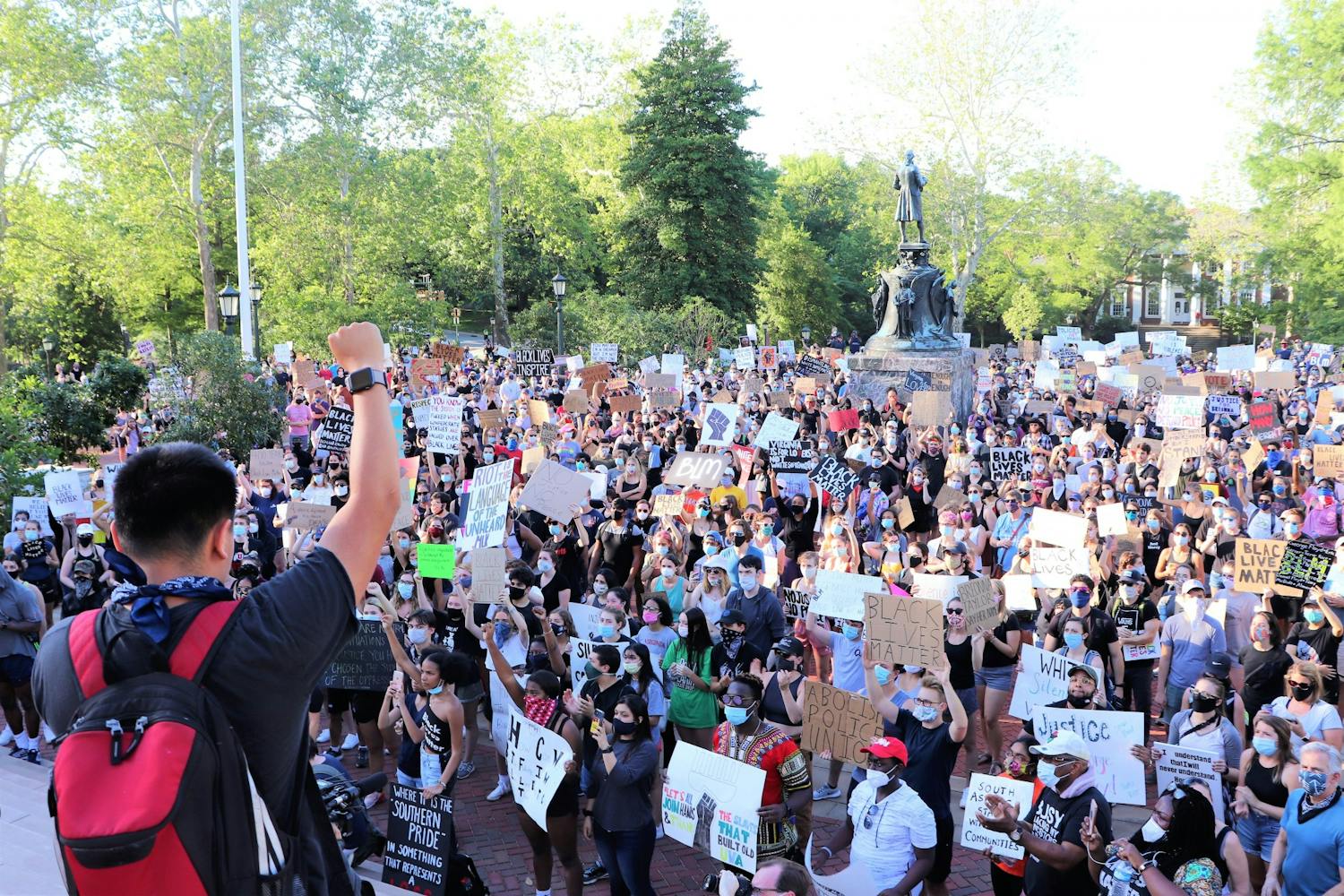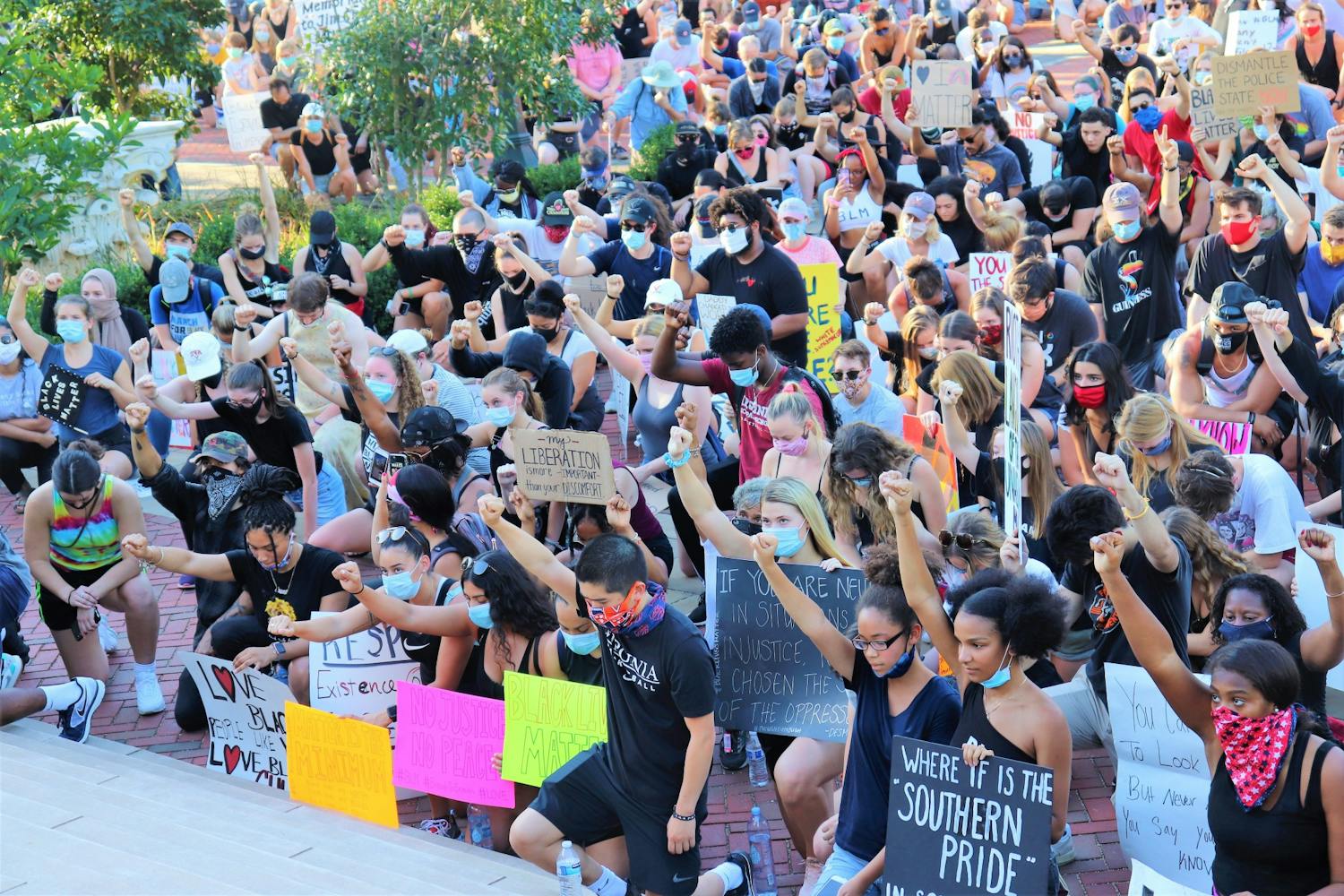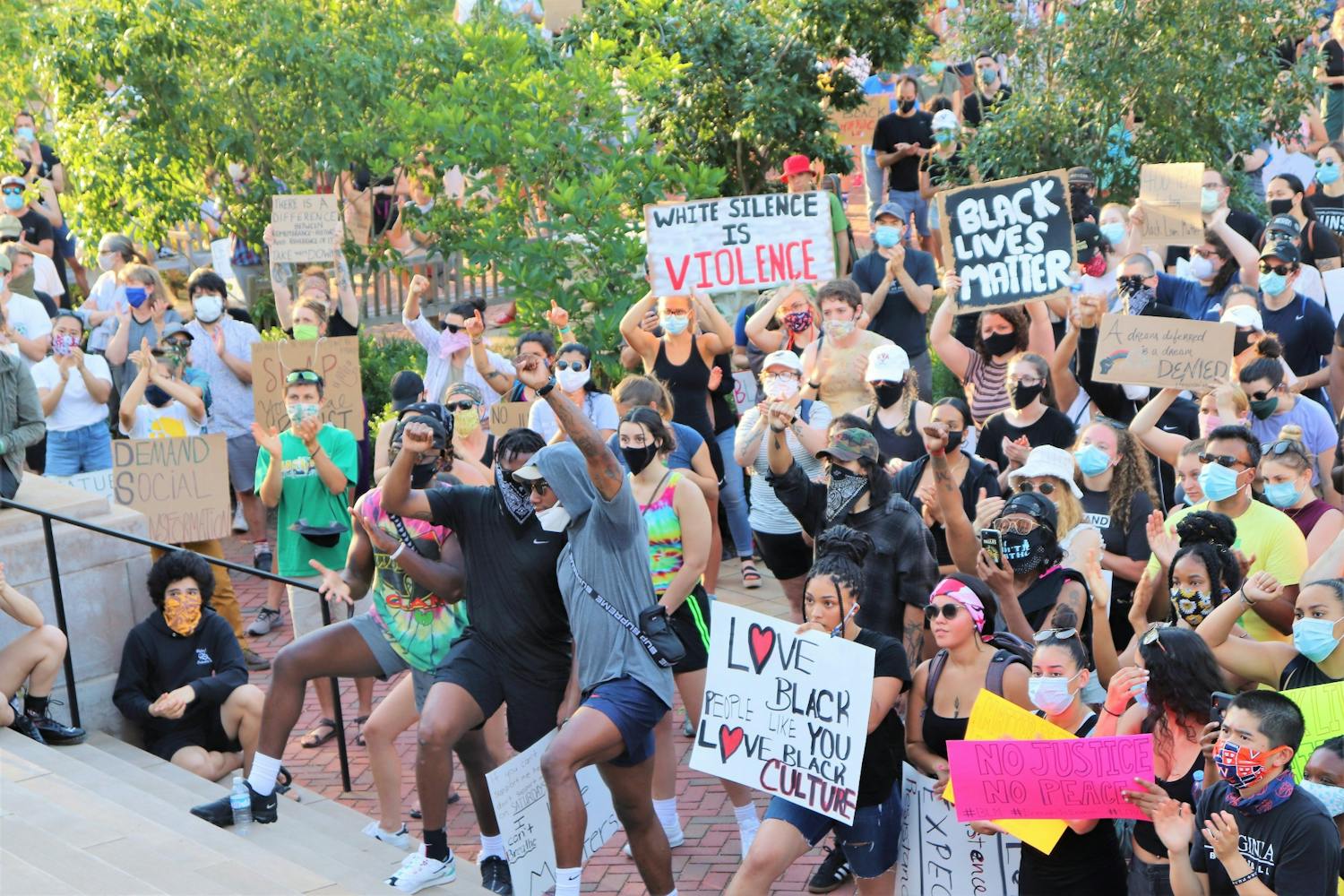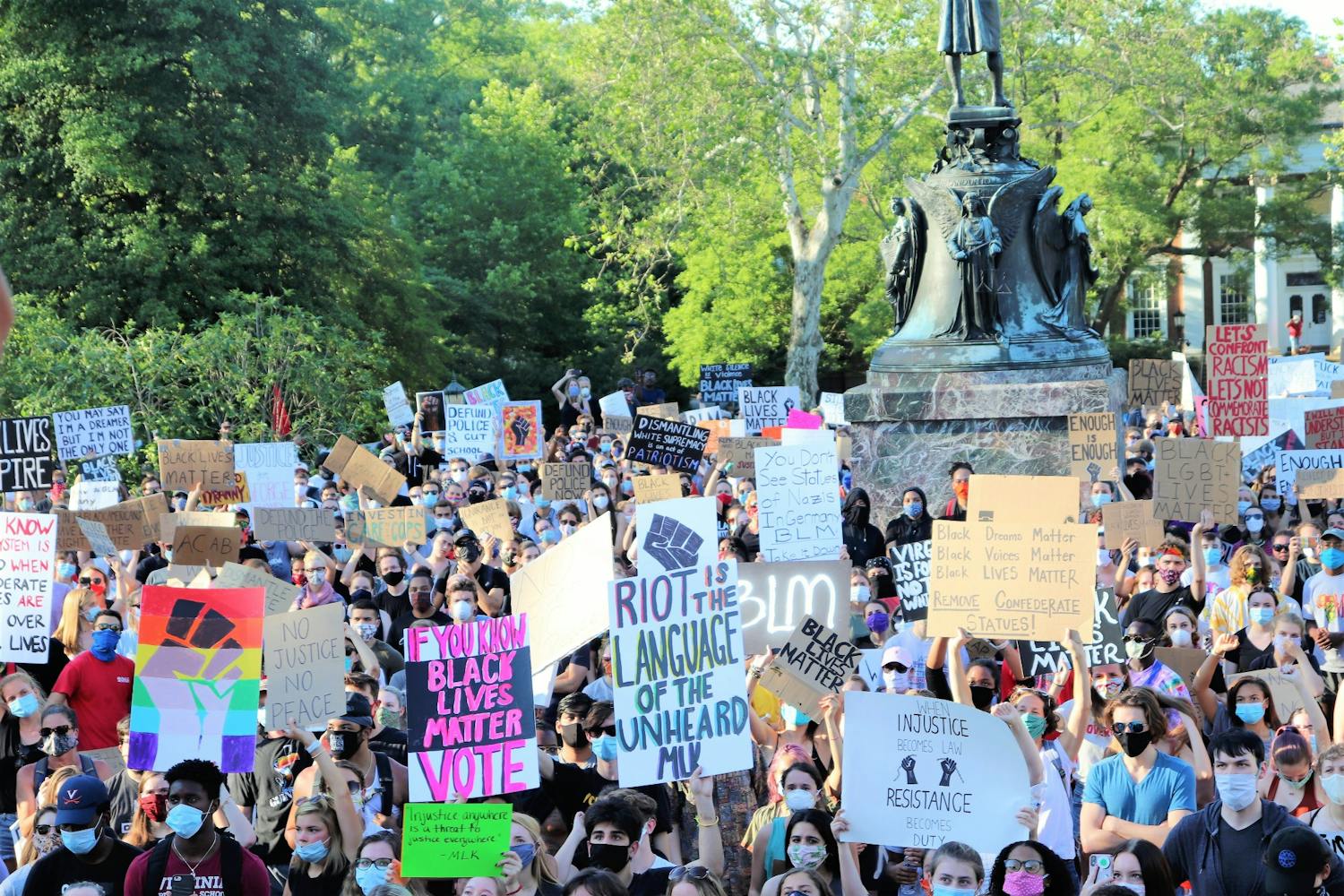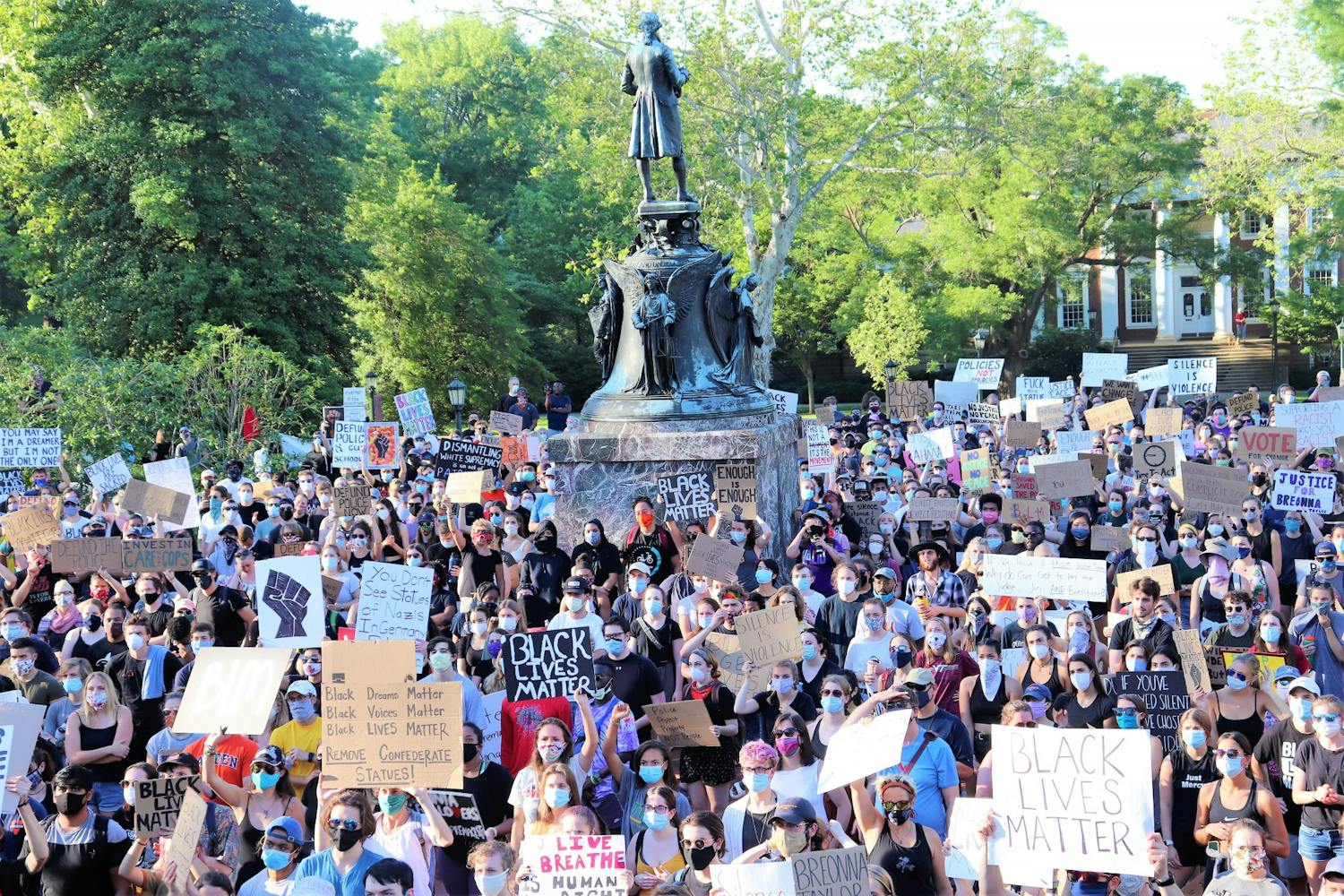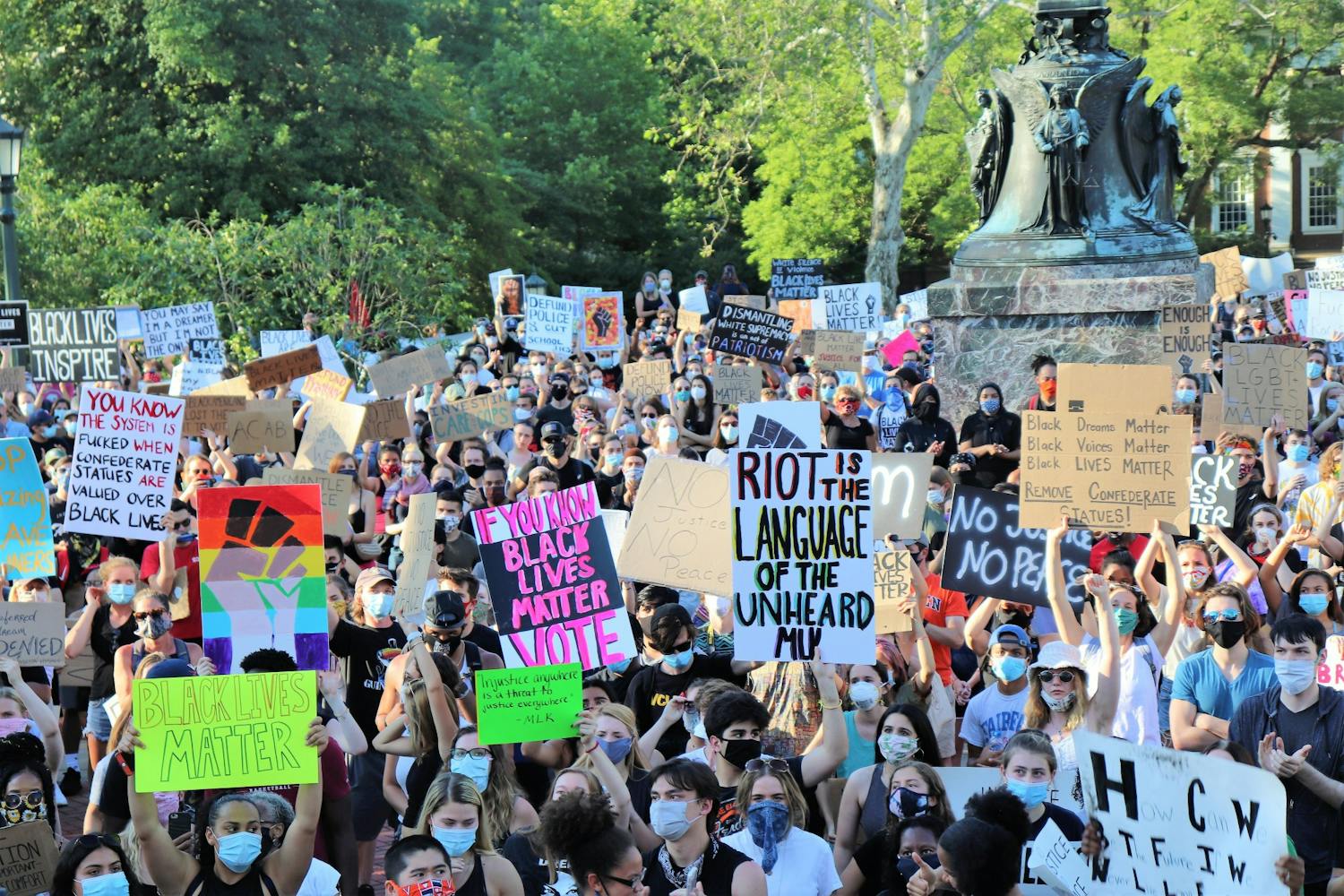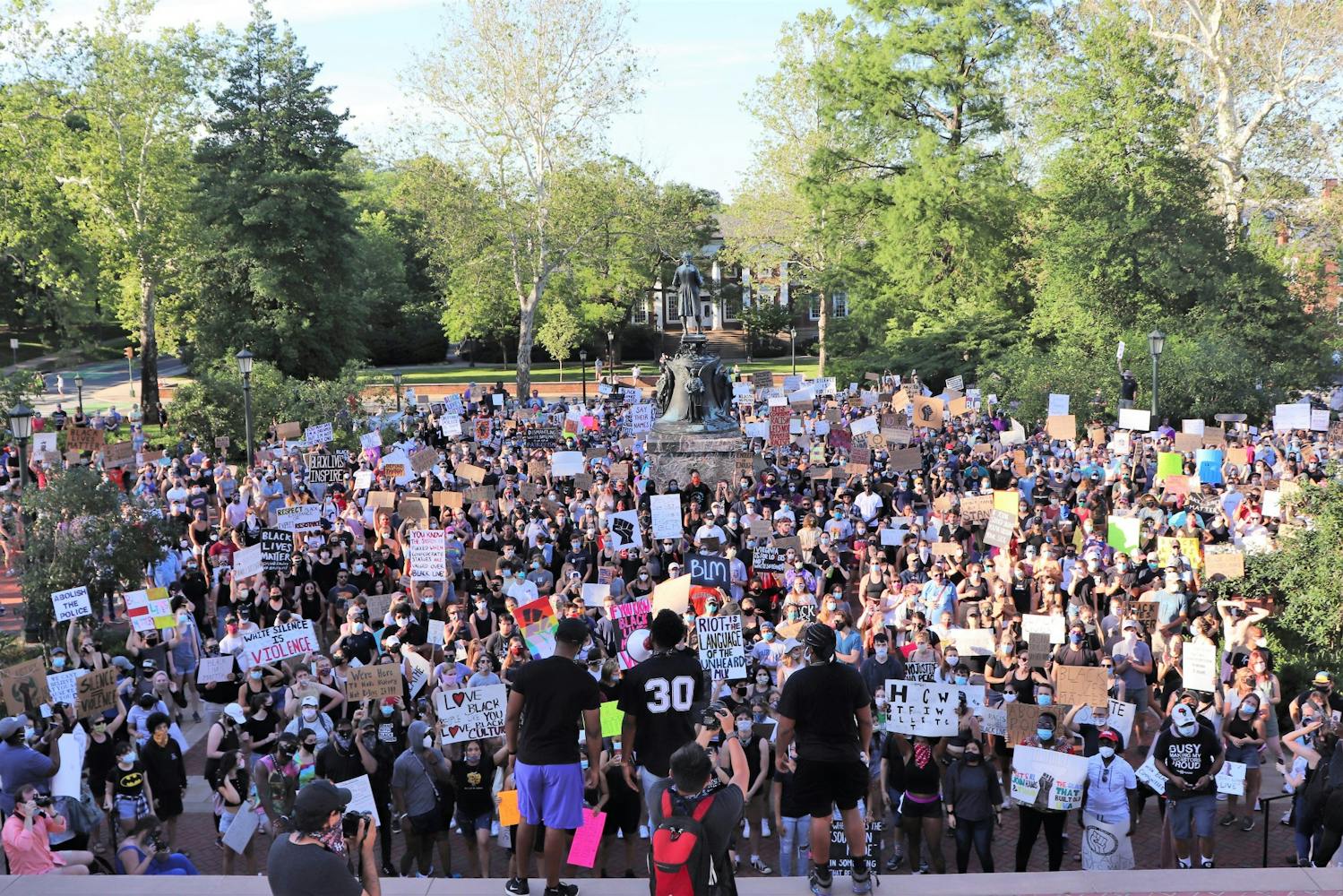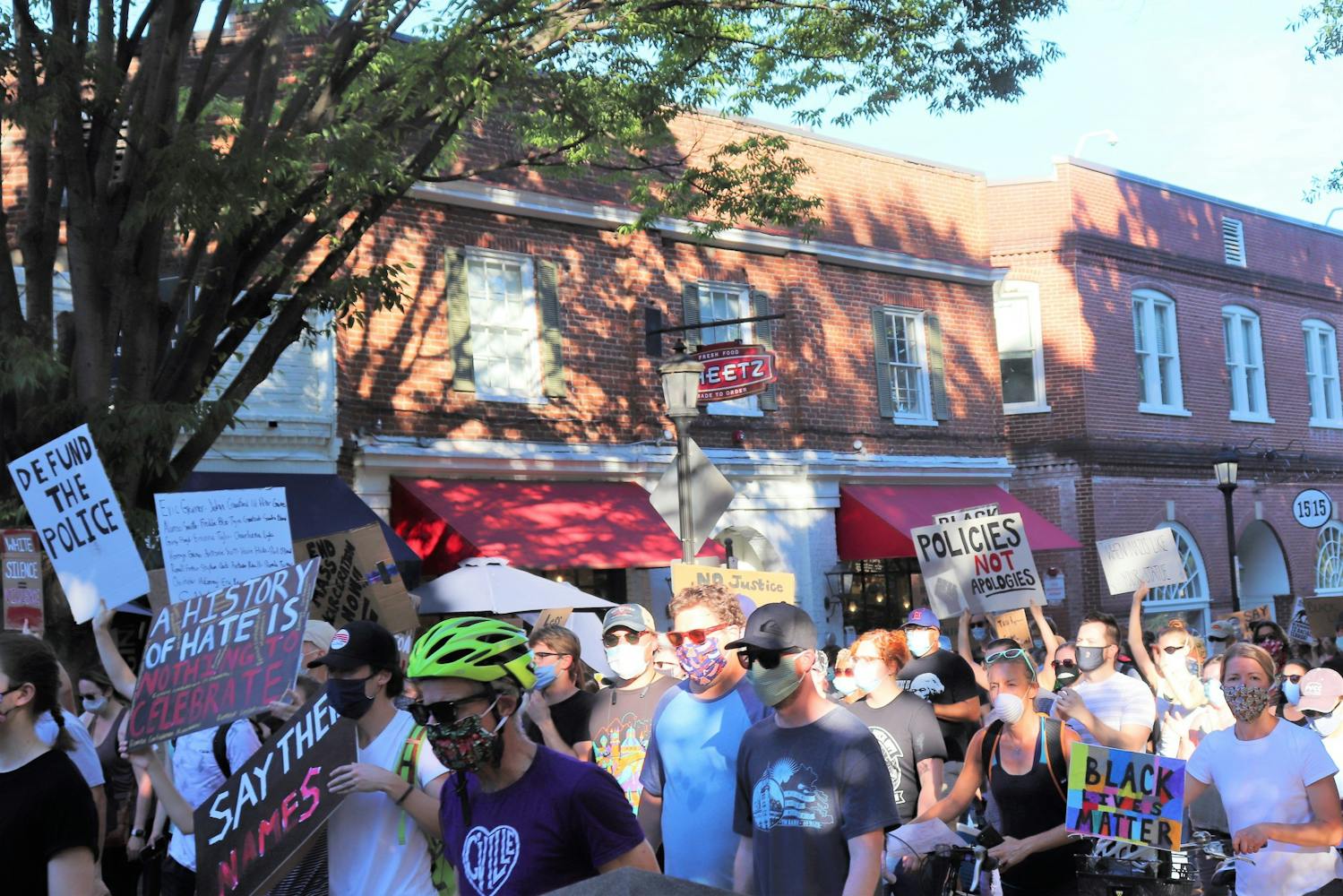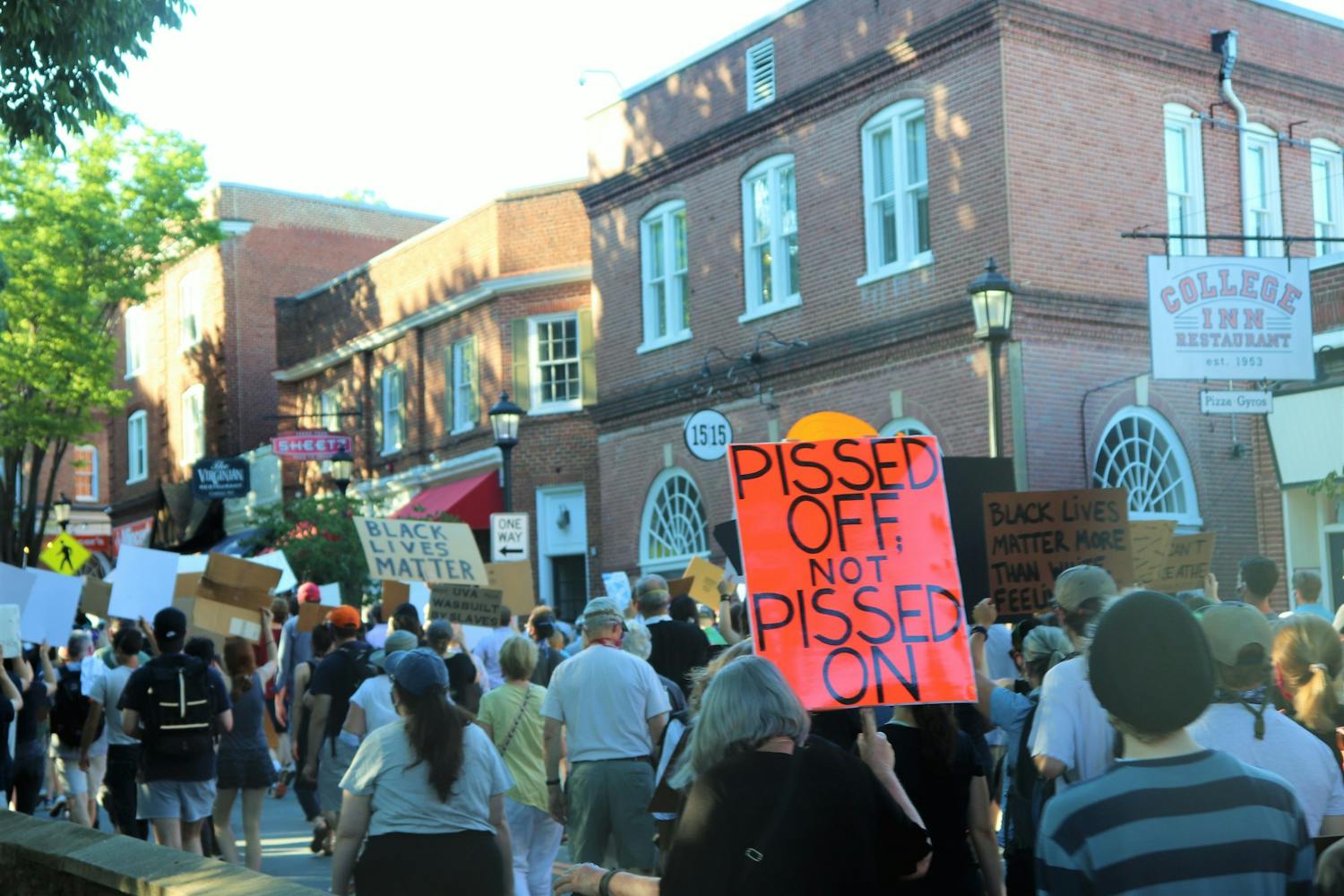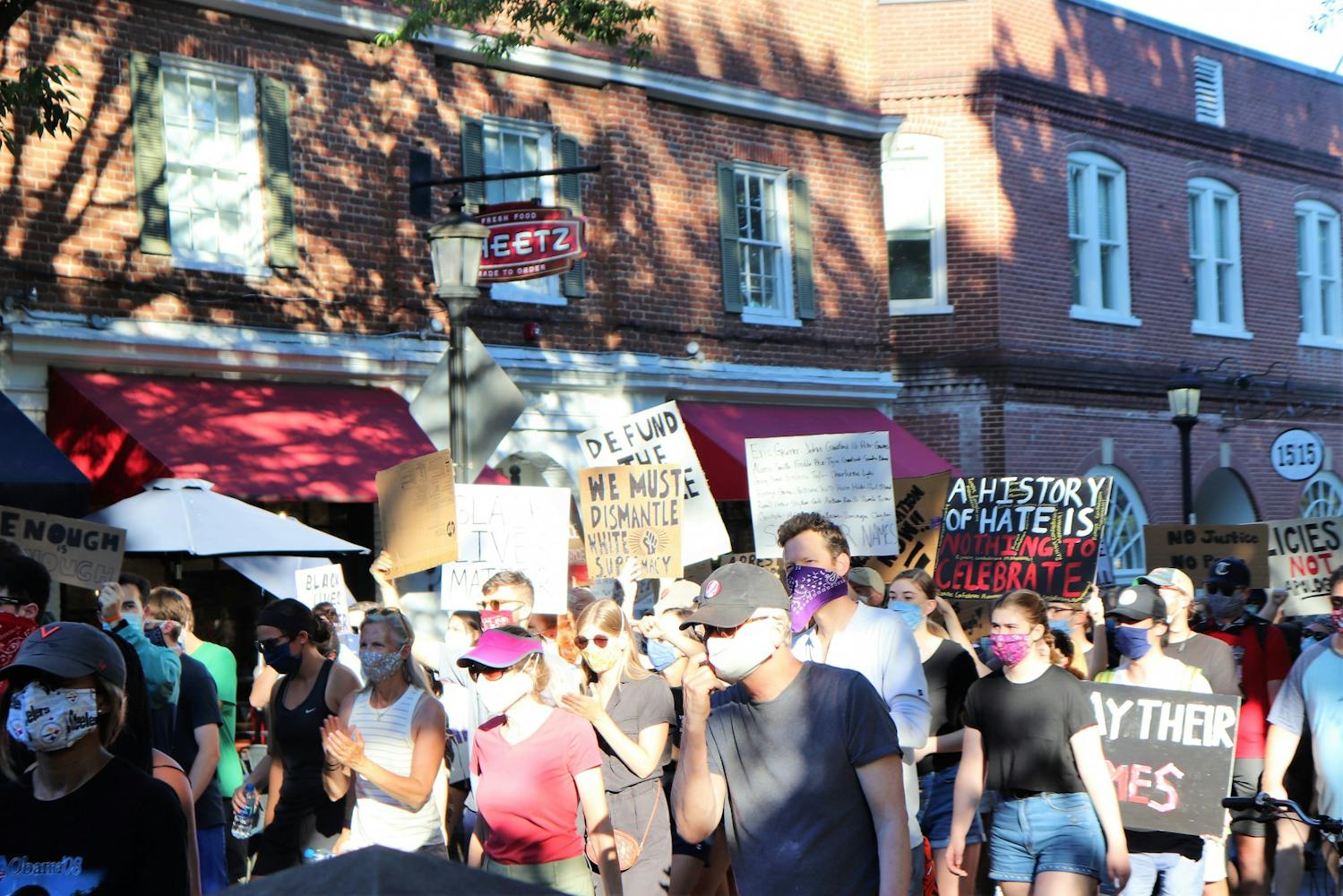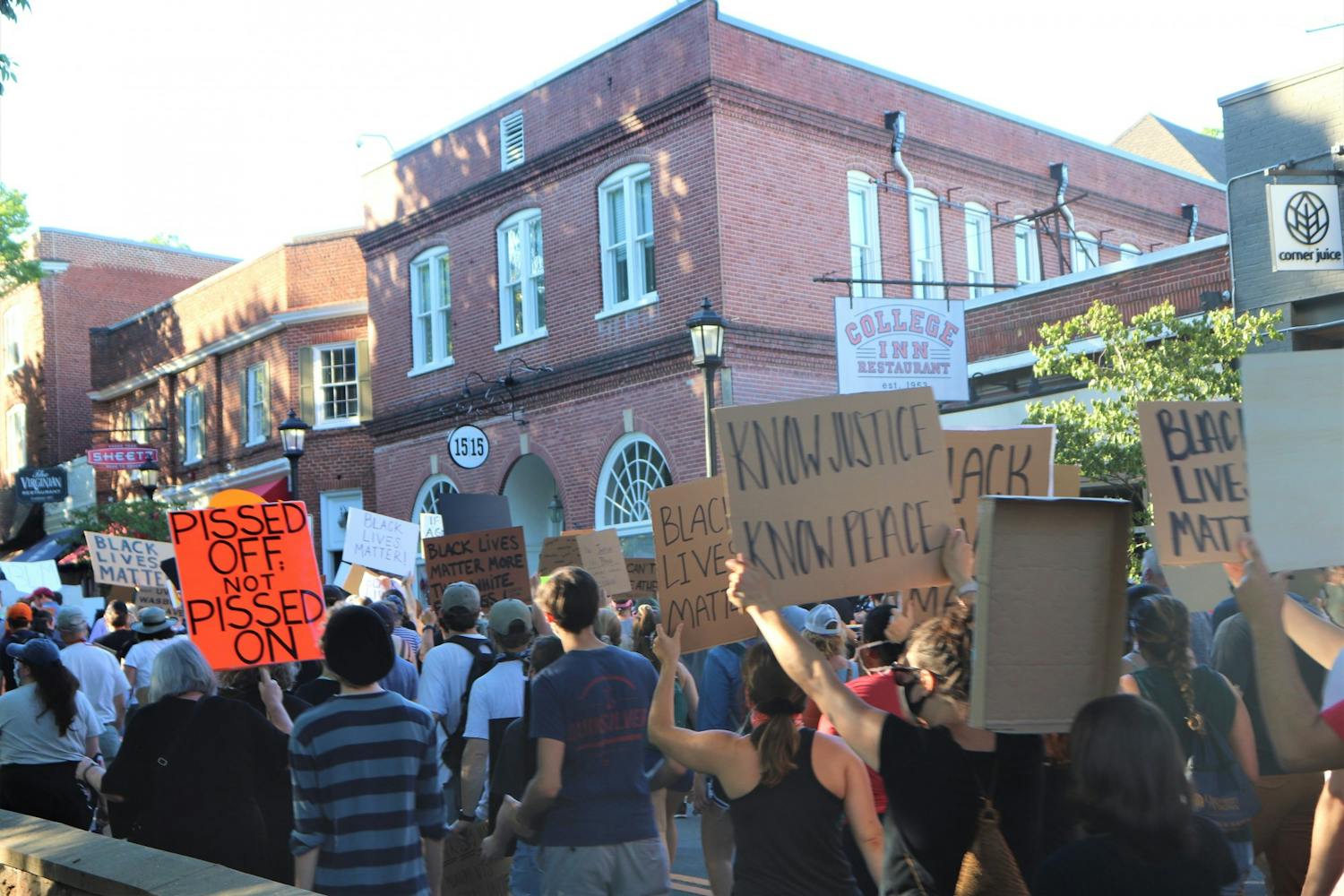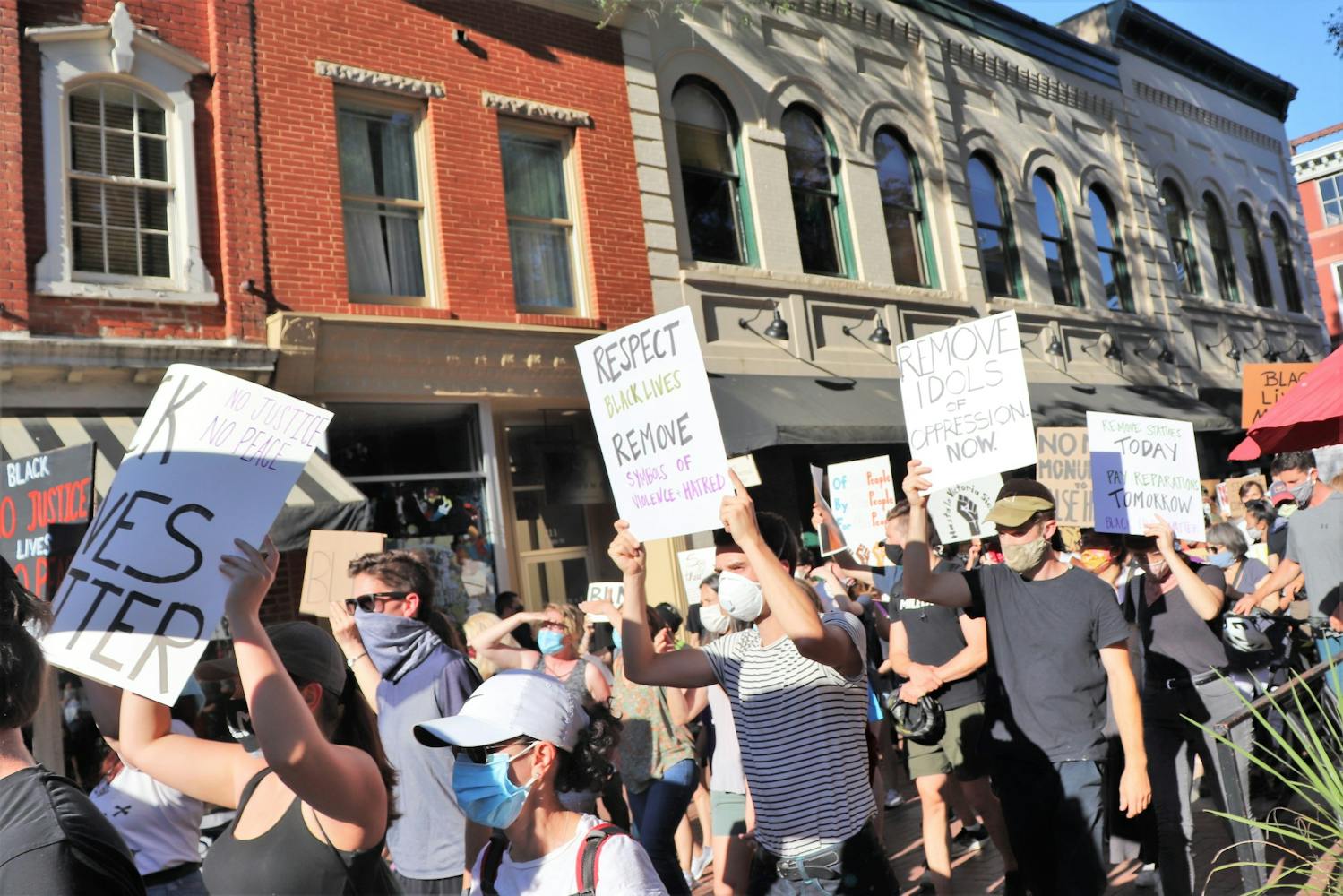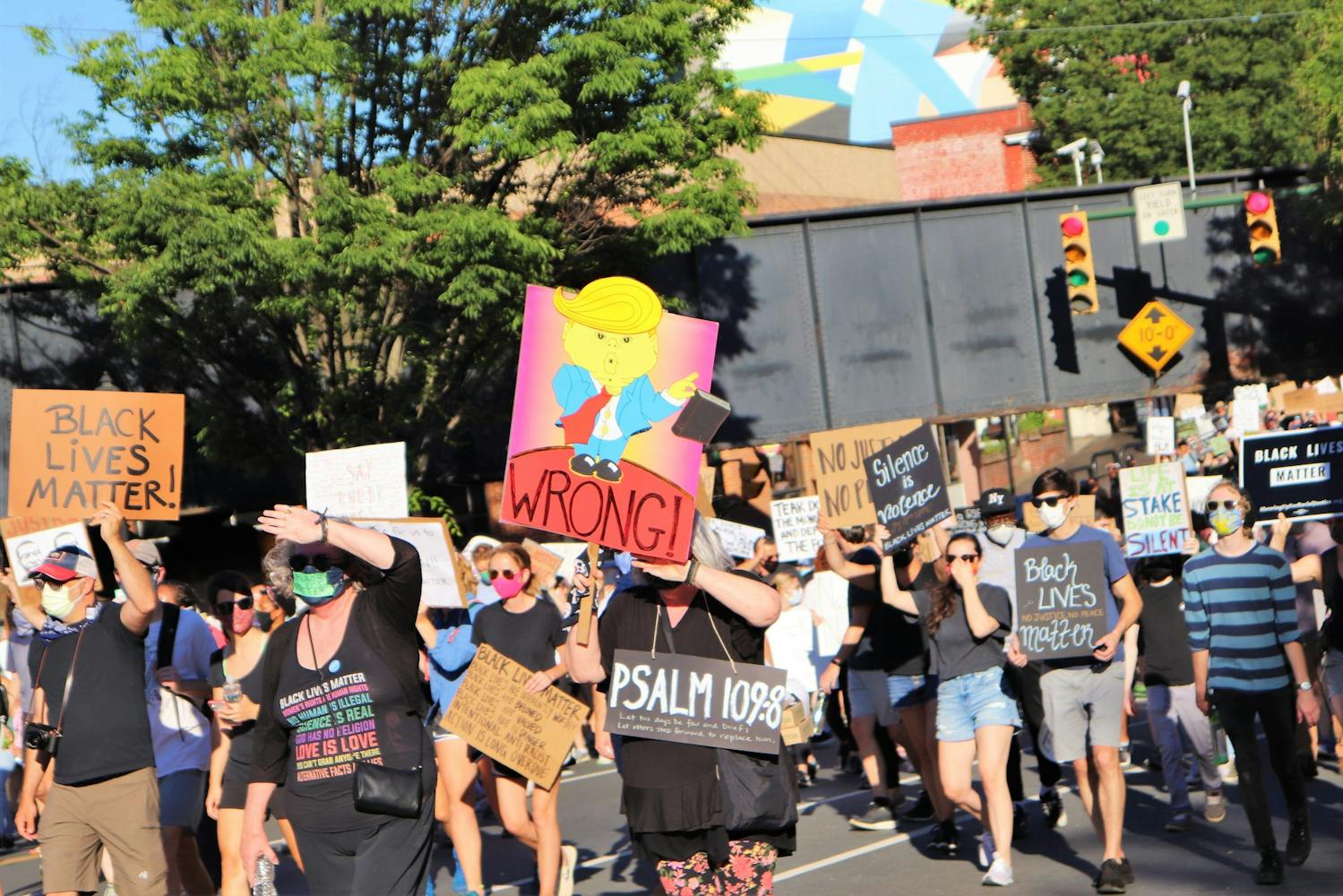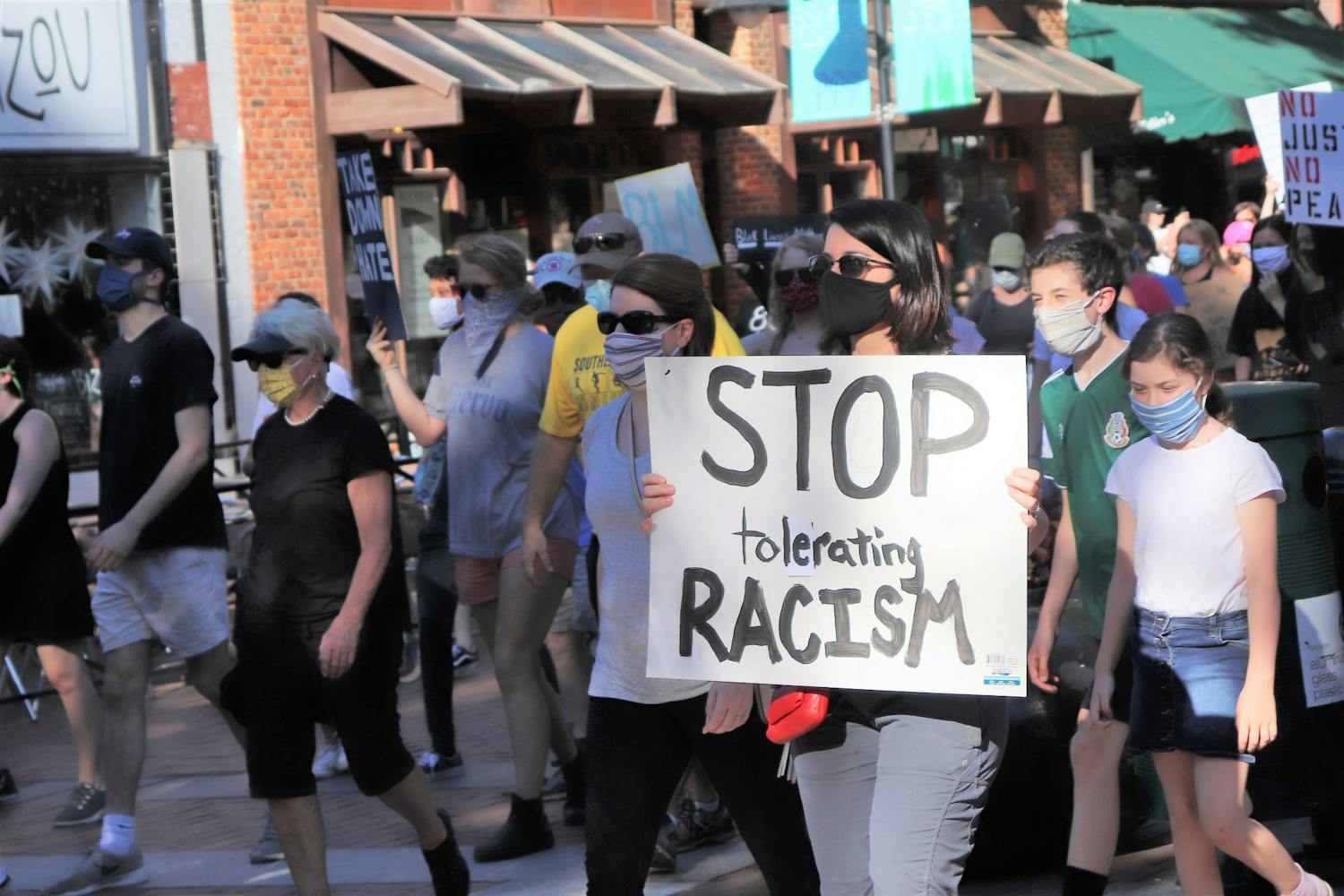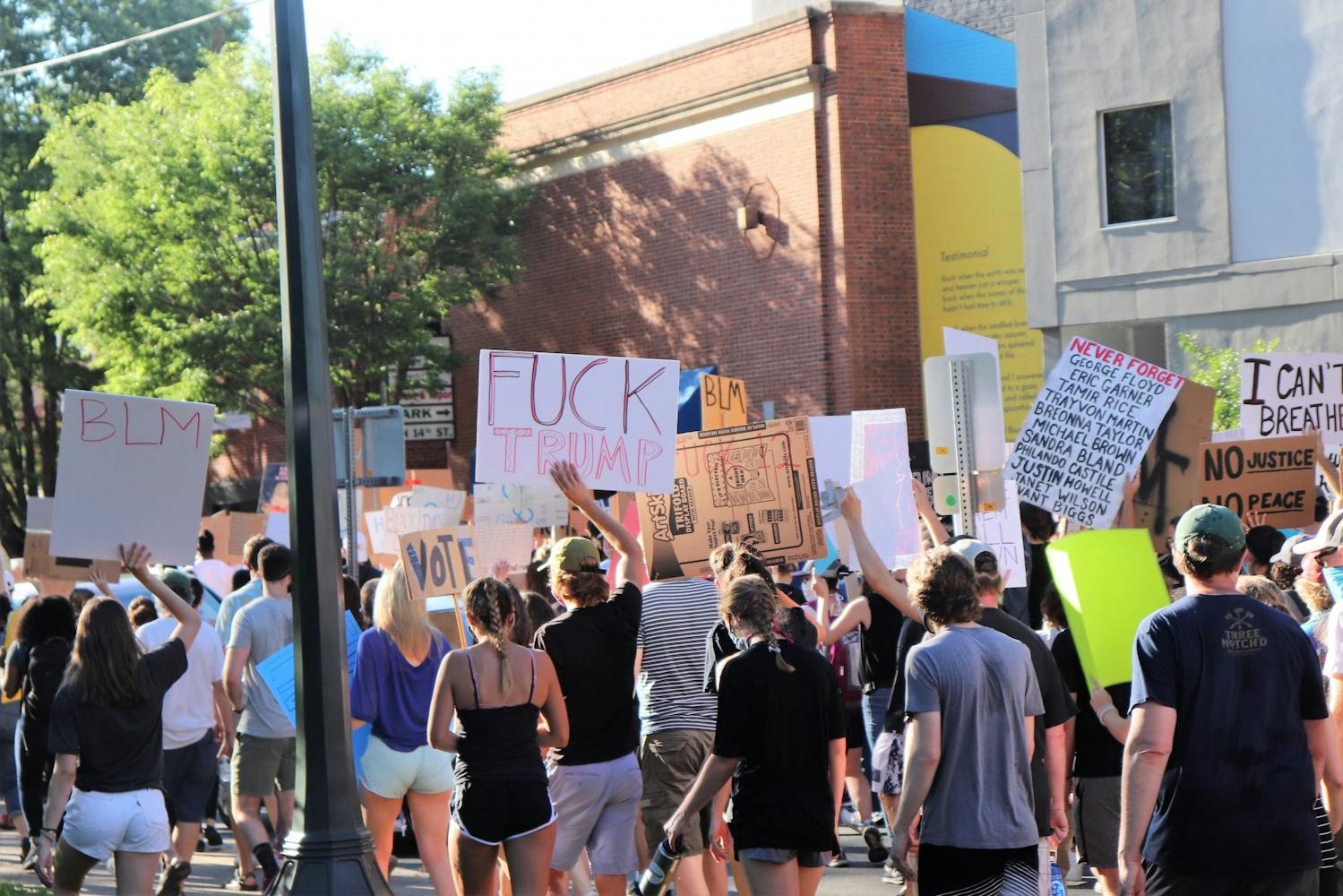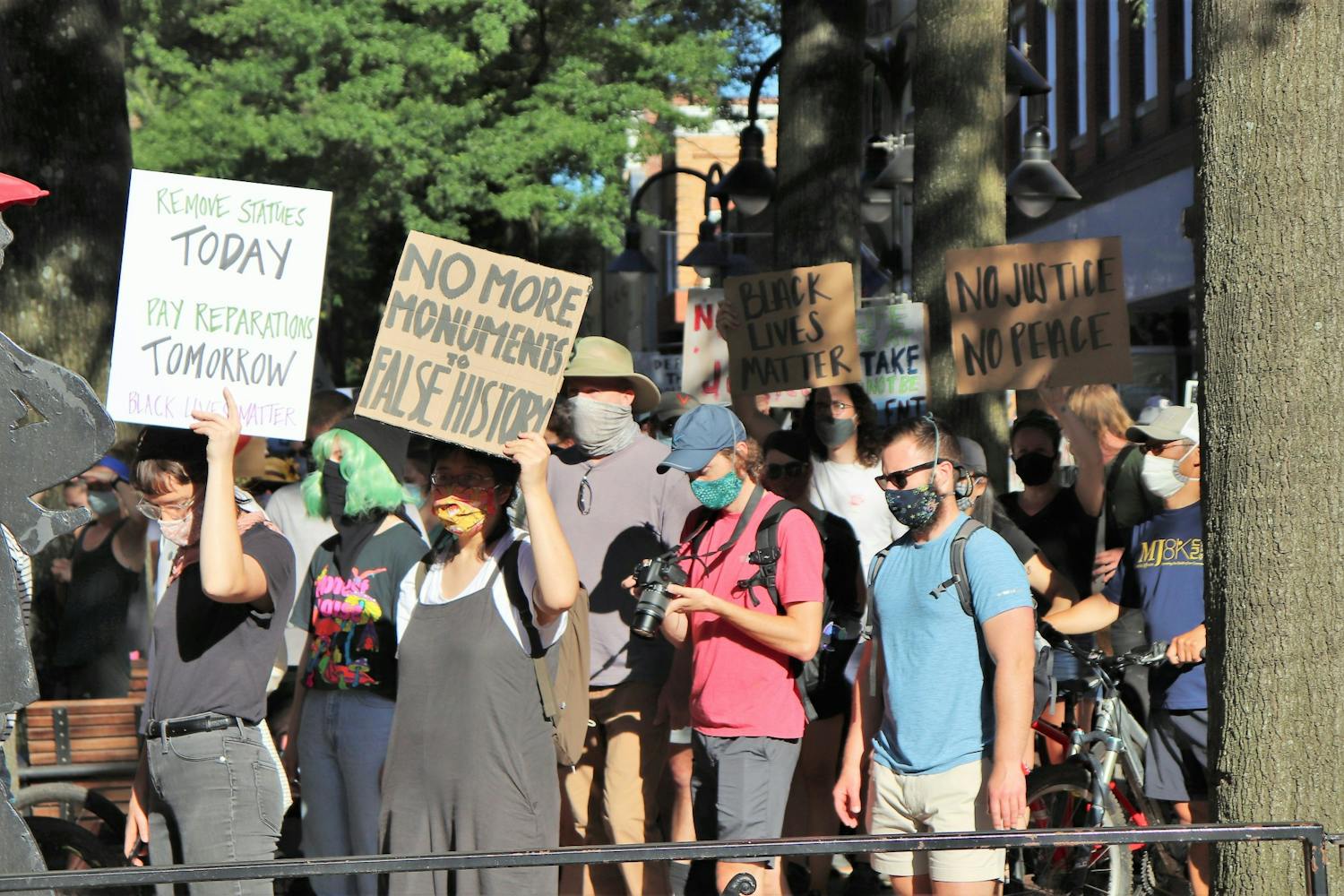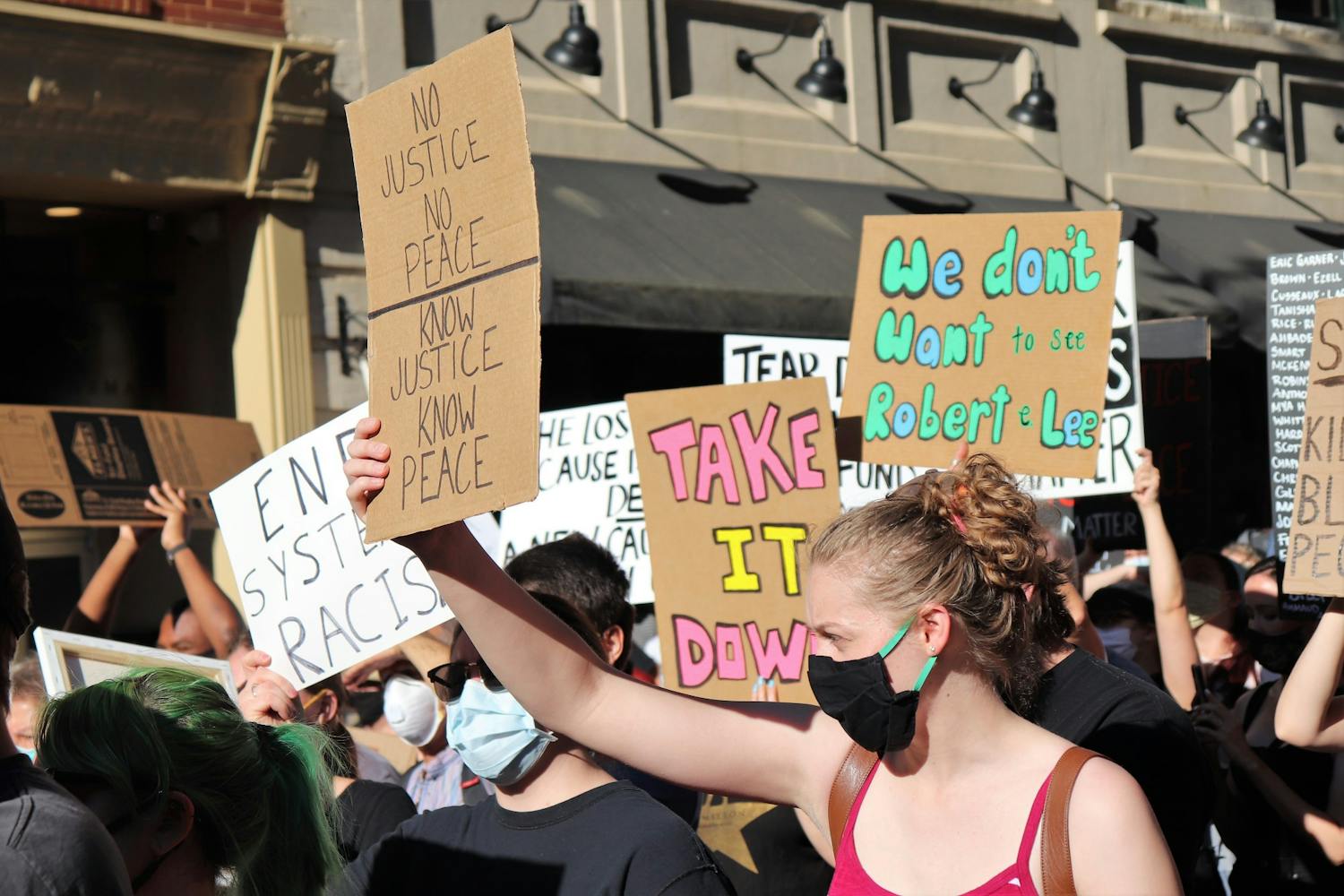An estimated 1,000 students and Charlottesville community members peacefully marched from downtown to the Rotunda Sunday evening calling for the removal of Confederate monuments in Charlottesville and to honor the lives of Black people who have been killed by police brutality in the U.S. — including George Floyd, an African American man who was killed in Minneapolis May 25 after a white police officer knelt on his neck for more than eight minutes — and Breonna Taylor, an African American woman who was killed in her apartment in March by Louisville Police during a no-knock warrant.
Demonstrators quickly made their way through the Downtown Mall after gathering outside City Hall around 6 p.m., chanting sayings such as “Hands up, don’t shoot,” “I can’t breathe” and “Take them down,” referencing Charlottesville's Confederate Monuments.
While the Charlottesville City Council has yet to make a decision on when or how to remove Confederate monuments in the City — namely statues of Robert E. Lee and Stonewall Jackson located in Market Street Park and Court Square Park, respectively — a law passed by the General Assembly earlier this year grants localities the ability to decide the fate of such monuments under their jurisdiction. Charlottesville officials have privately begun discussions on how to go about removing the statues, although public engagement on the matter is not expected until later this summer, after the new law goes into effect July 1.
However, Charlottesville’s path towards removing the statues became more clear Friday after the Monument Fund and other plaintiffs in a lawsuit against the City filed to make a motion to partially dissolve a 2017 injunction barring the removal of both the Lee and Jackson statues. The Council originally voted to remove the Lee statue in February of 2017 — following a petition launched by rising second-year College student Zyahna Bryant — and then the Jackson statue in September that year after the monuments became the epicenter of violent white supremacist rallies during the summer, including the deadly Unite the Right rally in August.
During the Sunday protest, many demonstrators also held signs condemning police violence disproportionately affecting Black people in the U.S., including texts such as “Black Lives Matter,” “White silence is violence” and “Defund the police.”
As the crowd grew in size on its trek to the University, protesters flooded West Main Street and University Avenue, forming a wall of people that could be clearly seen for nearly half a mile. Vehicular traffic was completely obstructed along most of West Main Street for at least an hour Sunday evening. Charlottesville public works crews used large trucks to block off the Downtown Mall to any vehicular traffic and other side streets along the protest route, while police personnel directed traffic away from the demonstration but did not directly engage with the crowd. As the demonstration neared Grounds, several University Police Department cars and a handful of officers were stationed at the intersection of University Avenue and Rugby Road, although police personnel did not directly engage with protesters.
When the march reached University Avenue’s border with the University’s Grounds, the bells of nearby St. Paul’s Memorial Church rang out as demonstrators cheered and continued chanting antiracist slogans in unison. The crowd then engulfed the north side of the Rotunda, crowding around the Thomas Jefferson statue and onto the Rotunda’s marble steps. Despite the crowded conditions of the protest, the vast majority of demonstrators wore face coverings in light of the ongoing COVID-19 pandemic.
Organizers Tyler Tinsley, a student at Piedmont Virginia Community College in Charlottesville, and Joshua St. Hill, a rising second-year College student at the University, continued to lead protesters in chants such as “Black Lives Matter” and “Say his name — George Floyd” before addressing the crowd.
“The times are changing, we have more people fighting than ever before,” St. Hill said of the crowd’s diversity. “We have all lives unifying over this right here because Black lives matter around the whole entire world.”
St. Hill added that it is important to bring new people into the realm of activism, even if they may be initially hesitant or unwilling to participate in a protest.
“You gotta keep fighting any way you can,” St. Hill said. “Just because you didn't show up today doesn't mean you can't fight. Just because you didn't show up today doesn't mean you messed up to a point beyond return.”
St. Hill also invoked Jefferson Davis, the president of the Confederate States of America during the American Civil War, and the formal start of the war in April of 1861 in asserting that racism has been fundamental to the nation’s development.
“This country was not built for us,” St. Hill said. “On April 12, 1861, President Jefferson Davis said that this country was founded by white people, for white people, and that the inequality of whites and blacks was stamped from the beginning.”
Tinsley said it’s crucial that individuals call out their white friends displaying racist behaviors — such as saying the n-word — and engage in the tough conversations necessary to educate them on why such actions are unacceptable. Tinsley added that, even though he is 19 years old, he still has conversations with his mother about the best way for him to dress and present himself to avoid attracting the attention of police.
He said it was essential to ensure that the energy provided by recent Black Lives Matter demonstrations across the country endure well into the future in order to further the movement’s momentum.
“We can’t use Black Lives Matter as a hashtag, we gotta keep doing it everyday,” Tinsley said. “Tell your friends who are at home with nothing to do and didn’t come out — shame on them, shame on them because if you're not with us, you're against us.”
St. Hill and Tinsley invited members of the crowd onto the Rotunda steps to speak their minds on their experiences with racism. Among them were Rev. Don Gathers, a community organizer with the Public Housing Association of Residents, Larycia Hawkins, a faculty member in the Department of Politics and Department of Religious studies and a rising third-year University student who only identified himself as Alex.
Gathers said Sunday’s demonstration was the latest example of Charlottesville community members banding together to speak out against white supremacy and police violence but lamented the need to continue protesting time after time.
“We showed them in 2017, and here we are again today showing them the same thing,” Gathers said. “When things go wrong, we turnout, we speak up and we show up — this is Charlottesville. It’s just sad that we have to continue to gather in this way. The system itself is not broken, the system was never designed for us in the first place. Therefore, it is working just as it was designed to do to continue to oppress us [and] to put their foot in our chests and their knees on our neck — today is the day we say no more.”
Alex said he has never felt embraced by the University community as long as he’s been a student but added that Sunday’s demonstration changed that.
“All I’ve thought is ‘I don’t belong here’,” he said. “This is the first time that I’ve ever felt like this campus has embraced who I was.”
Alex added that he chose to attend the University to prove that he could succeed in such an environment and show his two younger brothers that it was possible for them to do so as well. However, Alex said that one of his brothers chose not to attend the demonstration out of fear of being harmed by law enforcement based on police violence taking place in other cities across the U.S.
“He was afraid of being out here walking [and] being unapologetically Black because he’s been seeing everyone get shot with rubber bullets and [tear] gassed,” Alex said.
During her remarks, Hawkins said Confederate monuments in Charlottesville were not the only statues that needed to be removed, gesturing towards the Thomas Jefferson statue in the middle of the crowd. The Jefferson statue served as a violent rallying point for white supremacists in August 2017, where they violently clashed with antiracist protesters at the statue's base immediately after holding a torch lit march through Grounds the night before the Unite the Right rally.
“Speaking of statues we have to tear down, how about that one right there?” Hawkins said. “The one that neo-Nazis and so called ‘very fine people’ marched around because it’s not symbolic, it's indicative of what this country was founded on and what this University was founded on too.”
Hawkins echoed the sentiments of other speakers in emphasizing that continued protest would be necessary well beyond a single-day demonstration, invoking Martin Luther King Jr.’s 381-day Montgomery Bus Boycott during the Civil Rights Movement as the standard for enduring protest against racial injustice.
“Put your bodies on the line, our bodies are on the line everyday,” Hawkins said. “America has been one long lynching for Black people.”
Before disbanding, demonstrators were called upon to kneel in silence for eight minutes and 46 seconds — the approximate length of time in which former Minneapolis police officer Derek Chauvin knelt his knee upon George Floyd’s neck as he pleaded “I can’t breathe.” Shortly afterwards, Gathers offered remarks on the importance of civil disobedience as a means for enacting change but also cautioned that violence and destruction in one’s own community is counterproductive.
“I know many of y’all expected me to pray for peace, but it's time for some righteous indignation,” Gathers said. “It's time for Black and Brown people all over this community and all over this country to raise a little hell.”
Sunday’s march is among numerous other demonstrations that have been taking place across the U.S. since George Floyd’s murder, including a protest in Charlottesville May 30. Despite some instances of violence and conflict between demonstrators and law enforcement personnel in other Virginia localities — such as Richmond, Fredericksburg and Manassas — both the May 30 protest and Sunday’s march were peaceful and resulted in no major conflicts. In an email to The Cavalier Daily, University Police Department spokesperson Ben Rexrode said no arrests were made by UPD Sunday as a result of the demonstration. As of 9:30 p.m. Sunday, Charlottesville Police Department spokesperson Tyler Hawn also said that CPD had made no arrests related to the demonstrations, but added that the department was investigating one report of an assault that occurred during the protest.

